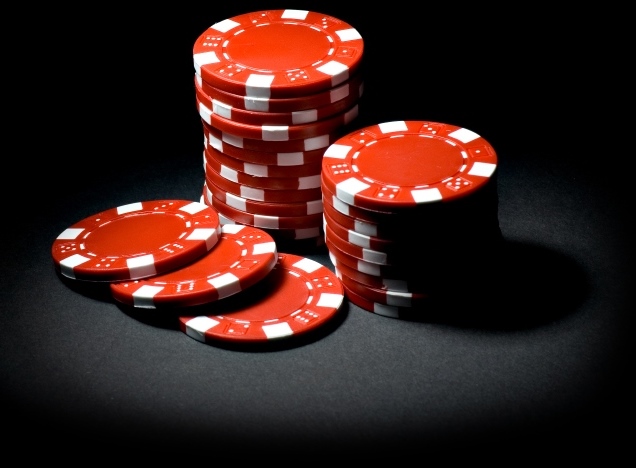- The Reviews
- UNIBET Review 2025
- MANSION Review 2025
- BETSAFE Review 2025
- BWIN Review 2025
- BETSSON Review 2025
- JETBULL Review 2025
- WILLIAM HILL Review 2025
- BET-AT-HOME Review 2025
- ZET Casino Review 2025
- CASINO.com Review 2025
- Mr GREEN Review 2025
- 888 Review 2025
- VEGAS CASINO ONLINE Review 2025
- LAS-VEGAS USA Casino Review 2025
- SUN PALACE Casino Review 2025
- ROYAL ACE Casino Review 2025
- PLANET 7 Casino Review 2025
- CLUB WORLD Casino Review 2025
- SILVER OAK Casino Review 2025
- Free Casino Games
US
- Best Online Casino Games Guide
- Choose Your Best Online Casino
- The Best Casino Games
- Online Card Games
- Best Online Machine Games
- Table Games
- Online Slots
- Complete Modern Online Blackjack Guide
- Free Blackjack Basic Strategy
- Simplified Blackjack Playing Strategy
- How to Play Blackjack Online Like Pros
- Advanced Blackjack Rules and Strategy
- Step-by-Step Blackjack Playing Procedures
- Blackjack Playing Options Guide
- Master Blackjack Card Counting
- Modern Blackjack Card Counters Challenge
- Which is the Best Blackjack Betting System?
- Nine-Count Blackjack Strategy Review
- Blackjack Myths and Errors
- Online Roulette
- Sportsbook
- Online Poker
- Online Video Poker
- Online Scratch Cards
- Online Bingo
- Online Baccarat
- Online Craps
- Asian Casino Games
- Online Keno
- Online Sic Bo
- Casino Bonuses
- Online Casino Reviews
- UNIBET Review, Casino, Sportsbook, Poker & Live Dealers
- BETSAFE Review, Casino, Poker, Live Dealers & Sportsbook
- MANSION Review, Casino, Sportsbook & Live Dealers
- BWIN Review, Sportsbook, Casino, Poker & Live Dealers
- BETSSON Review, Sportsbook, Casino, Live Dealers, Poker
- JETBULL Review -Casino, Sportsbook, Live Dealers
- BET_AT_HOME Review, Sportsbook, Casino, Poker, Live Dealers
- WILLIAM HILL Review -Casino, Sportsbook, Live Dealers, Poker
- ZET Casino Review
- Mr GREEN Review -Casino, Sportsbook & Live Dealers
- CASINO.com Review -Online Casino & Live Dealers
- Las-Vegas USA Casino Review
- Sun Palace Casino Review
- Royal Ace Casino Review
- Planet 7 Casino Review
- Club World Casino Review
- Vegas Casino Online Review
- Silver Oak Casino Review
- Free Casino Games
Slot Machines - Old and Current Myths
The following is a partial list of myths that people believe about gambling machines. Let’s understand them and find out if they are true.
- Bonus Amount: $3,000 up to $10,000. The best daily bonuses on the internet.
- Games: An incredible number of slots, table games, and video pokers, including HTML5 games.
- Strong security protocols of 128-bit encryption
- Audited and guaranteed fair by TST
- Website: https://www.lasvegasusa.eu/casino/
- Established: 1999
- Software: Real Time Gaming (RTG)
- US and Canadians players supported
- Platforms Supported: Windows, Mac, iPhone, iPad, & Android.
- Type of Casino: Online & Instant or download.
- Free Slots Games: Yes
- Customer Support: 24/7 live chat support, as well as a toll-free phone number: +506-283-0061, and e-mail support
Write your review of Las-Vegas USA Casino
- Website: http://www.royalacecasino.eu
- Casino Type: download client, instant play, and mobile
- Software: Real Time Gaming (RTG)
- Owner: Emoney Processing Casinos LTD
- Established: 2009
- Casino Promotion: 100% Match Deposit Bonus up to $4,000, Daily and Weekly Bonuses
- Coupon Code: CASINO400
- Currencies: US$, Euros, Yen, Pounds, Bitcoin
- Mobile: both desktop and mobile compatibility
- VIP Program: 5 levels Available
- Support: World Class Support, 24/7 live chat & Toll-free phone number for USA and Canada
- Security: 128-bit SSL encryption
- Certified by: CDS (Central Disputes System)
- Languages: English
- License: Costa Rica
Write your review of Royal Ace Casino
- Bonus: 400% up to $10,000.
- Website: https://www.sunpalacecasino.eu/
- Software: Real Time Gaming (RTG)
- Deposit Methods: ClickandBuy, MasterCard, Money Order, Neteller, Visa Electron, instaDebit, Visa, MST Gift Card, Skrill, Bitcoin
- Withdrawal Methods: ACH, Cheque, Money Order, Neteller, Skrill
- Withdrawal Times: EWallets: 2-5 days, Credit / Debit Cards: 10-12 days, Bank Transfers: 7-12 days, Cheques: 21-28 days
- Pending Time: 3-7 days
- Withdrawal Limit: $5,000 per week
- Games: Incredible number of games of all types
- support: 24/7 through live chat, phone, or e-mail
- Support Response Time: 24 hours via email or Instant using Live Chat.
- Encryption: 128-bit SSL
- Audited and found fair by TST
- Languages: English.
- Progressive Jackpots: up to Million-Dollar.
- Restricted Countries: Bosnia, Costa Rica, Malaysia, Morocco, Netherlands, Russia.
Write a review of Sun Palace Casino
- Bonus: 320% Bonus + 45 Free Spins
- Casino Website: https://www.silveroakcasino.com/
- Casino Promotion: 320% Match Deposit Bonus up to $10,000 in 10 first deposits, up to $100 No Deposit Bonus, Weekly and Monthly Cashback, and much more.
- Casino Type: download client, instant play, mobile, and live dealers
- Software: Real Time Gaming (RTG)
- Live Casino: Available Live Dealers Casino
- Owner: Emoney Processing Casinos LTD
- Established: 2009
- Currencies: US$, Euros, Yen, Pounds, Bitcoin
- Mobile: both desktop and mobile compatibility
- VIP Program: 5 levels Available
- Support: World Class Support, 24/7 live chat & Toll-free phone number for USA and Canada
- Security: 128-bit SSL encryption
- Certified by: CDS (Central Disputes System)
- Languages: English
- License: Costa Rica
Write your review of Silver Oak Casino
- Bonus: First Deposit 350% Bonus + 25 Free Spins
- Website: https://www.planet7casino.com/
- Casino Type: download client, instant play, mobile, and live dealers
- Software: Real Time Gaming (RTG)
- Live Casino: Available Live Dealers Casino
- Owner: Emoney Processing Casinos LTD
- Established: 2008
- Casino Promotion: 200% Match Deposit Bonus up to $4,000, and much more.
- Currencies: US$, Euros, Yen, British Pounds, Bitcoin
- Mobile: both desktop and mobile compatibility
- VIP Program: Available
- Support: World Class Support, 24/7 live chat & Toll-free phone number for USA and Canada
- Security: 256-bit SSL encryption
- Certified by: CDS (Central Disputes System)
- Languages: English
- License: Costa Rica, Cyprus, the United Kingdom, and the Netherlands.
Write a review of Planet 7 Casino
- Bonus: Get 300% Match up to $3000 FREE Welcome Bonus
- Website: https://www.clubworldcasinos.com
- Software: Real Time Gaming (RTG)
- Mobile: Android, iPhone, iPad
- Casino Type: Download, Instant Play, Mobile
- Currency: US dollars
- Language: English
- License: Curacao
- Owner: Club World Casinos Group Casinos
- Established: 2005
- Audit: RTP Not publicly audited
- Currency: US dollars
Write a review of Club World Casino
- Bonus: Get 300% Match up to $3000 FREE Welcome Bonus
- Website: https://vegascasinoonline.eu/
- Established: 1999
- Software: Real Time Gaming (RTG)
- Currencies: US$
- US and Canadians players: supported
- Bonus Amount: up to $11,000 Match Bonus
- Platforms Supported: Windows, Mac, iPhone, iPad, & Android.
- Type of Casino: Download & Online Instant Play.
- Free Slots Games: Yes
- Owner: Main Street Vegas Group Casinos
- License: Costa Rica
- US Customer Support: (877) 691-5124
- Canada Customer Support: (888) 387-6717
- Email Address: [email protected]
- Live Chat: Yes
- Response Time: 24 hours via email or Instant using Live Chat.
- Languages: English.
- Progressive Jackpots: up to 1 Million-Dollar.
Write a review of Vegas Casino Online
Machines will vary in temperature and from time to time will feel hot. The machines are designed to operate within a wide temperature range, and, no matter how long or intensively they are played, that range is generally not exceeded. The machines are computers, so, theoretically, they could overheat, but the bottom line is that overheating will not benefit the player.
Can you imagine a computer breakdown that resulted in anything as good as a win? It is very unlikely that a slot machine would overheat, but, if it did, it would most likely cease to function.
The reasons for this myth are rather interesting.
First, it is likely that the chance association of hot with wins forms the basis of the belief. The coins do sometimes feel quite warm after being in a machine for a long time. Many people believe that a machine that has not paid out recently is due for a win.
This belief is in error, but, because wins are relatively uncommon, the player is more likely to experience hot coins when cashing out a big win than at any other time.
Wins are very powerful experiences, and anything that happens at that moment will tend to be stored clearly in memory as an episode.
So the heat of the coins becomes part of the memory.
This belief also fits in with a cultural metaphor that associates hot with lucky.
Episodic experiences derived from chance events, and positive (win) and negative (escape from pain) reinforcements of pre-existing cultural beliefs, may explain many of the myths that people believe regarding gambling.
There is a persistent erroneous belief that things even up in the long term. This belief comes under various names, including the law of averages. It is a widespread belief that is not restricted to Slots Machines.
Part of the problem indeed derives from the way in which mathematicians talk about the long term. Essentially, they are not talking about any set time period, but the situation when the average reaches its true value — and that takes as long as it takes for the values to asymptotically approach their true values.
It is the point at which an unbiased coin actually rounds off to 50% heads and 50% tails. This is a hypothetical time period because, in reality, the second you set a time period it can be violated. It is (and must be) possible that a coin could come up heads 1 million times in a row. This is extremely unlikely but possible.
For practical purposes, 1 million flips will nearly always be enough to achieve an average very close to 50% heads, but since it is still possible for 1 million heads to occur in a row, 1 million flips will not always work as the “long term.
Problem gamblers know the odds of the games as well, if not better, than nonproblem gamblers. For example, problem gamblers were significantly more likely to correctly answer questions regarding the chances of rolling a seven with a pair of dice.
However, the error that problem gamblers make is that they think they can beat the odds. It is likely that this error is exacerbated by the absence of accurate information on the actual odds of slot wins.
One of the main errors people make is working backward from the long-term odds to the short term. For example, in an interview, one gambler reasoned as follows:
- In the long term, heads and tails will come up equally often.
- If you get 100 heads in a row and then keep flipping, the number of heads and tails will eventually reach 50%.
- If this is true, then surely an extra 100 tails must occur sometime between now and the 1 millionth flip to even it up.
- Therefore, there must be a slight bias in favor of tails to help even it up.
This reasoning is not irrational.
In fact, if the long-term outcome were exactly 50% heads and exactly 50% tails, then the theory would have to be true.
The same reasoning is actually the basis of card counting and it does work in the game of blackjack (unless the casino is using a shuffling machine to keep the cards shuffled after every hand).
But, with a coin flip or any game where each game is independent of all others (slots, roulette, lotteries), the gambler needs to keep in mind that the long term rounds off to 50%. After 1 million flips, 3000 more heads than tails would still round off to 50% heads.
Despite the above facts, gamblers spend a lot of time looking for short-term deviations from expected averages. For example, they might look for a machine that appears due to pay out because it has not paid out recently. If such a machine is found, this deviation from the expected payouts is then interpreted in one of two ways. The machine is either due for payment and thus the rational plan is to bet, or it is unlucky (cold or tight) or has a bias against it.
The former would lead the player to play that machine.
The latter would lead the player to look for another machine with a bias in the player’s favor.
The interesting thing about these two beliefs is that they are opposite and contradict each other such that they cannot both be true. Interestingly, the same person will often hold such opposite beliefs. researchers found a high correlation between people who select numbers that have not come up for a while and those who pick numbers that come up frequently: r =.59, p <.01.
In addition, in nearly all cases, one of these beliefs will be confirmed by experience.
That is the machine that has not paid out either will payout, confirming the “due to pay out” belief or continue to not pay out, supporting the bias theory.
Some gamblers believe that lotteries are a bad bet because the chance of winning is very small. The probability of winning the top prize in a lottery maybe 1 in 15-20 million.
In reality, the odds of winning a game are irrelevant. If you buy enough tickets, you can make your chance of winning up to 100%, but you will still lose money.
The payback of slot machines in Ontario varies from 85% to 97%, whereas lotteries typically pay out only about 50% of ticket purchases back to their customers in prizes. As such, slot machines indeed seem to be a better buy.
However, slots are far more profitable than lotteries, but have a lower market penetration. In spite of the lower house edge, people appear to lose more money on slot machines than on lotteries.
This situation is related to the fact that people that play slots do not just make one or two purchases, but make a long series of bets. In addition, people churn their wins back into the game and play until a substantial amount of their money is gone.
As described above, the churn is the effect of reinvesting the winnings (credits) back into the game so that a 90% payback (10% house edge) bet three times becomes a 72% payback.
It is very easy to re-bet wins on a slot machine because there is no distinction between credits initially placed into the machine and credits that have been won. When averaged across both winning and losing sessions, players lose between 30% and 40% of what they bring to a casino because of the churn. While the payback per bet is higher on a slot, the continuous play on the slot means that people lose more to a slot than to a lottery.
If you play on several machines at the same time, you will win more often than if you only play on one machine.
However, because each machine pays back less than 100%, you will still lose more money than you would if you were only playing on one machine.
A good rule of thumb is to remember that the more you bet, the more you will lose in the long term.
This is the belief that some machines are set to pay out more money. One version of this belief is that machines near the entrance of a casino are set to be loose in order to entice customers into the casino.
There is also a false corollary that it does not matter which machine you play.
Machines do indeed vary in payout percentage and hit frequency. Players could substantially reduce their losses by playing at machines with the highest payback. However, since no information is given about the odds or payout of a particular machine, it would be impossible (except with video poker) to determine which machines were actually set to pay out more.
However, all of the machines would have a negative expected return, so the best you could expect in the long term with a loose machine would be to lose a little less.
What people call loose machines are most likely those machines that have paid out a lot of small prizes recently. The looseness might be merely random chance fluctuations (volatility), or the machine might be weighted more in favor of small prizes.
Some machines give back more money to their customers than other machines, but, even if you were lucky enough to find a “loose” machine, it would still not result in long-term wins.
A strategy recommended by A Complete Idiot’s Guide to Gambling Like a Pro![]()
This advice is relatively harmless, but it is significant because it is one of the few inaccurate pieces of information that we found in this book.
However, the opposite strategy, staying at the same machine, hour after hour, in the belief that it will eventually have to pay off, is a much worse strategy because the more you bet the more you lose.
If a hit-and-run strategy reduces actual play or persistence, then it is a reasonably good strategy.
However, the fact is that neither changing machines nor staying at the same machine improve your chances of winning. Both hit and run and sticking to the same machine sometimes seem to work, but neither can result in long-term wins because the wins and losses are random events and every spin is independently random.
Yes and no. Yes, if you accidentally walk away from your machine before cashing out, someone might steal your money.
However, another player cannot win a prize that you might have won.
Many players who have spent a lot of time at a particular machine are reluctant to leave it, even to go to the bathroom, because they believe that it’s due to pay off and they do not want someone else to win their jackpot. Thus they keep feeding the same machine.
Many gamblers have told us stories about walking away from a machine and later witnessing someone else winning on that machine. These stories are no doubt true but represent a memory bias.
The reason people recall these events is that, when this does happen, it becomes a very strong memory filled with regret and perhaps anger. But when it does not happen — later players do not win — it is not a very strong memory.
In short, we remember instances when this happens, but take no notice when it does not.
As stated above, the Random Number Generator runs continuously and a millisecond difference in the button press will lead to a different outcome. So, even if a player had stayed at that particular machine, he or she would most likely not have won that same jackpot.
When slot machines were first invented over 100 years ago, they consisted of three flywheels that were set in motion by the pull of the lever.
The force of the pull of the lever would to some extent determine how far the reels would turn. It might have been possible to manipulate the outcome to some extent by carefully controlling the lever.
Some players still believe that it is possible to win by controlling the lever or timing the press of the spin button.
Modern slot machines are computers. The reels themselves are essentially decorative. As stated above, a Random Number Generator (RNG) determines the wins and losses on a slot machine.
The computer uses numbers drawn from its RNG to determine where the reel will stop before it is even set in motion. The computer determines that the reel should land on the symbol for a cherry, and it spins it to that location.
There is no such thing as a near-miss on a slot machine because the symbols that come up when you do not win are simply displays of losing plays. A near miss is, in fact, a total miss — a loss.
No gameplay event ever predicts wins. However, the concept of a near miss is rather controversial. Certain types of near misses are illegal.
Once upon a time, slot machines were programmed to produce near misses such as two win symbols on reel 1 and 2 and another winning symbol just above or below the pay line on reel 3.
What made this programming illegal was that symbols shown on the slot machine did not accurately represent the outcome of the game.
The computer was programmed to first determine that the spin was a loss and then spin the reels to display what appeared to be a near win. One of the reviewers of this article defended the industry’s record of following the law regarding near misses, noting that, in virtually every jurisdiction, programming near misses is illegal. Near-miss programming violates the independence of the three reels so that the game outcome cannot be called random. According to the gambling industry, slot machines are no longer programmed to create near misses.
However, there are several different potential definitions of a near miss. The law only makes certain types of near misses illegal. Any near miss that occurs by random chance is definitely legal.
A near miss of two out of three winning symbols or a near-miss just off the pay line is perfectly legal if it occurs by random chance. Two out of three winning symbols occur many times more often than a win.
If a jackpot based on three reels had a probability of 1 in 1000 (e.g., 1/(10*10*10),) a two out of three near-miss would occur 29 times more often than a win (e.g., (1/10*1/10)*3). If you add to that all the possible other ways in which you could define a near miss (e.g., two or three winning symbols just above or below the pay line) or all the possible combinations that could be near misses (two bars, two diamonds, two treasure chests, two red sevens), near misses will happen very often purely as a result of unbiased random chance.
But slot outcomes are not unbiased. Above we described how the pictures on slot machines are not equally probable and that they are weighted in favor of nonpaying and low-paying pictures.
The simple act of shrinking down 32 virtual reel stops into 22 actual reel symbols is sufficient to enhance near misses of the pay line.
This is because the slot is condensing a virtual reel with many low-paying or nonpaying stops (e.g., blanks) to an actual reel with somewhat fewer low- or nonpaying stops.
However, since the virtual reel is random and the three reels are independent, virtual reel weights are legal. Virtual reel stops on the pay line are unbiased random events. However, they do affect the probability of the pictures seen just off the pay line.
Near misses off the payline such as those that can be enhanced by virtual reel weights are not illegal. The Nevada Gaming Commission held extensive hearings on this subject and, on September 22, 1988, it filed a stipulation declaring it legal.
Thus it is legal to enhance near misses using virtual reel weights. The Wizard of Odds Web site reports the results of an empirical investigation of the weighting of one particular machine (http://www. wizardofodds.com/game/slotapx1.html).
Virtual reel weights only apply to three-reel slot machines. Five reel video slots are so incredibly complex, with so many pay lines (up to nine crisscrossing), that the industry does not need to use virtual mapping to create near misses. The very fact that there are five reels and multiple crisscrossing pay lines greatly enhances the number of winning symbols and apparent near misses that the player will see on each spin.
Another manner in which near misses are enhanced on five-reel video slots is that, on some video slot machines, three or four winning symbols lined up from the left pays a large prize, but three or four winning symbols lined up from the right does not pay any prize.
In addition, many machines have unequal numbers of winning symbols on their reels (AGMMA, 2000). This enhances the chances of getting two out of three winning symbols.
The rate of near misses is lowest when all three reels have the same probability. Any deviation from equal probability appears to elevate the probability of a near miss. For example, if the big win symbol occurs with a probability of 1 in 10 on each reel, the chance of a jackpot win is 1 in 1000, but the chance of a near miss is 30 in 1000.
If the probability of the win is 1 in 5 on the first two reels and 1 in 40 on the third reel, the chances of a win are still 1 in 1000, but the chances of a near miss are now 50 in 1000.
The overall probability of a near miss is only slightly enhanced unless the reels differ by a large amount. However, placing more winning symbols on the first two reels concentrates the near-miss action on the first two reels. This is particularly important because the first two reels stop first, giving the player a period of anticipation before the third reel comes to a stop. Interestingly, having fewer win symbols on the first two reels compared to the third also enhances near misses. This form of near-miss enhancement is perfectly legal because the reels are still independently random.
In summary, slots are not programmed to produce near misses, but the setup of the reels enhances the number of apparent near misses that the player will experience. The weighting of the reels, multiple pay lines, and uneven distribution of symbols across the reels might result in the illusion that the odds are more favorable than the true odds.
The gaming industry manipulates near misses because they enhance the excitement of play. The same thing occurs with many instant lotteries, where tickets will usually contain one or two large prize symbols, but almost never have three large prize symbols.
It is unclear why people find nearly winning exciting. Perhaps people believe that nearly winning means they will win soon. Perhaps they believe that luck grows over time and a near miss means that you are nearly lucky enough to win. Whatever the reason, the fact is that the slot images are randomly selected before the reels spin.
The reel does not almost stop on the winning symbols. The take-home message is you either win or you lose. There is no such thing as an “almost win.” A near miss is simply a loss.
This is my first favourite myth and is one that I believed until my first actual casino gambling experience.
This is an erroneous belief held mostly by nongamblers or perhaps by people who have not yet played on one of these machines.
The simple fact is that you can win.
Slot variance is much greater than with other games of chance (e.g., blackjack), so that a player has a more pronounced roller-coaster experience than with other games.
Typically, a player will lose, for example, 82% of the time, but would experience small wins perhaps 15% of the time. These will occasionally, and dramatically, be punctuated by medium and large prizes, 2% to 3% of the time.
Although the player will most likely lose in the long run, the chance of long-term wins is never eliminated.
The fact that long-term wins are always possible is perhaps one of the facts that keeps players at it, clinging to the belief that winning is possible.
Before a slot machine is licensed, its mathematical properties are tested across millions of simulated bets in order to prove (within a very small margin of error) to the casino operators that the machine will make money across players.
But the chance of any specific player winning in the long term never drops to zero. Some people need to be convinced that they cannot win. For them, perhaps, pointing out the testing regimen that the machines are put through before being approved is a good strategy.
However, if naive gamblers hold the belief that they will never win before trying a slot, the shock of winning might be very powerful.
The contrast between expectation (you never win) and reality (you can win) may lead to the opposite distortion in their expectations.
This leads us to a recommendation regarding the discussion of wins. Rather than telling people they cannot win, explain to them that they will win occasionally and that these little wins often keep people playing so that they eventually lose that money and more.
Casino Games Blog 2025
The Bitcoin Casino Guide

Was This Helpful?
Recommend us on Facebook









